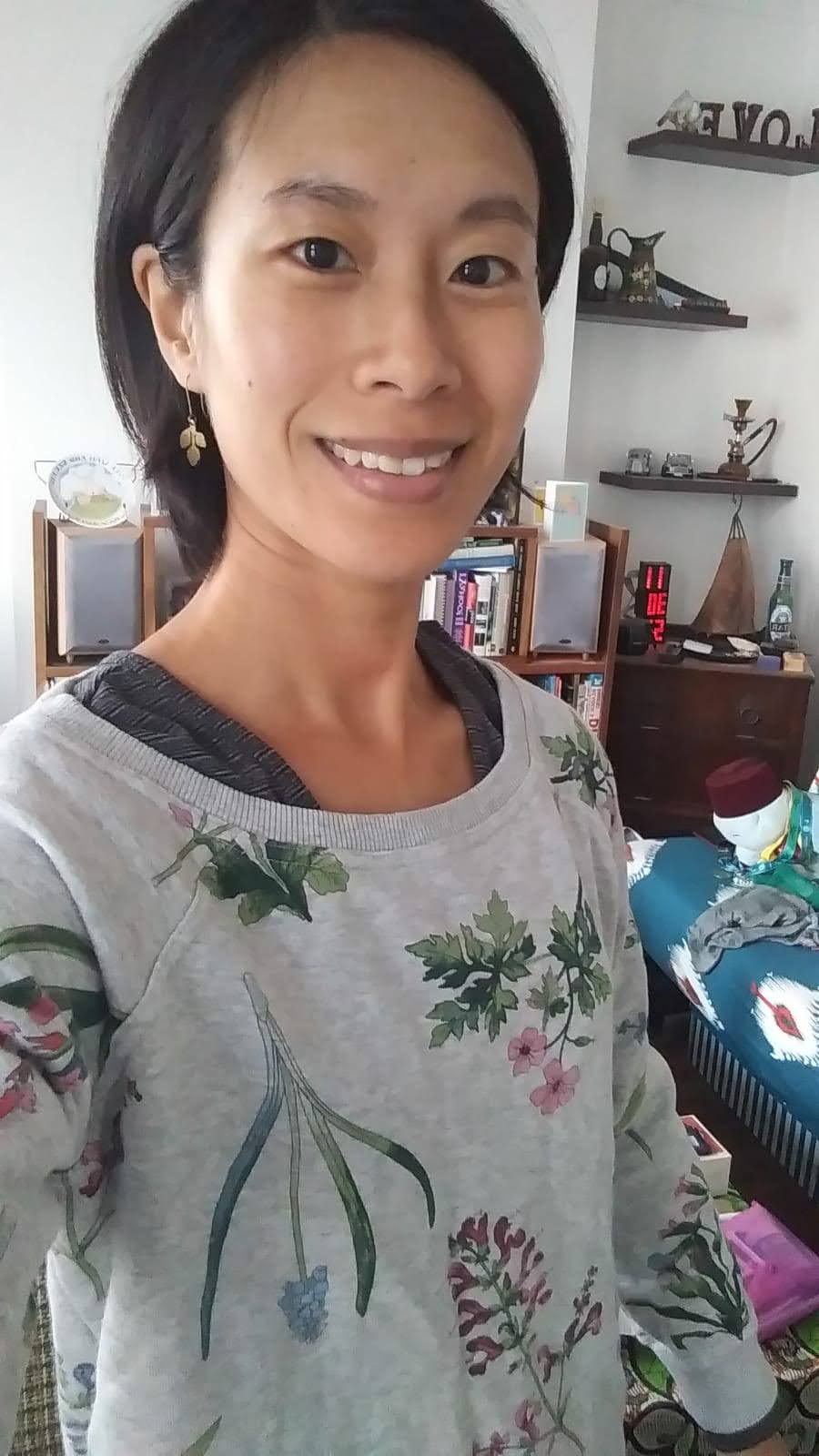Free Online Screening + Q&A: More Than Honey
Article by Sze Kiu Yeung
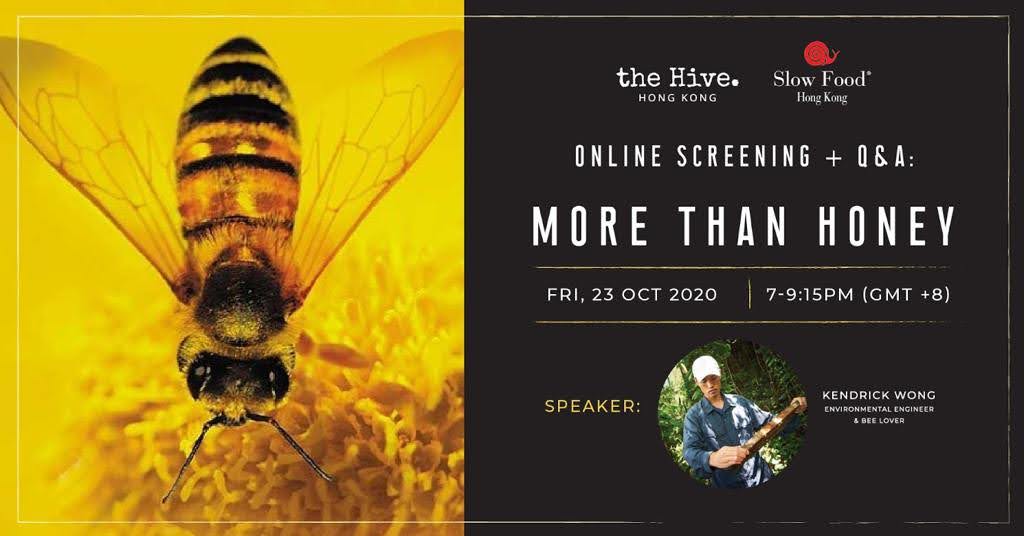
Honey is consumed in my household on an almost-daily basis: I have a spoonful in my morning porridge, I mix it in drinks and use it in my cooking – I even use it for my DIY skincare projects.
As someone who loves honey, I know what it is, how and why it is made. Yet, I must admit, I was pretty ignorant of the challenges of beekeeping and of the conditions of commercial honey production. Ashamedly, the welfare of bees was also never really part of my consideration when buying honey. Fortunately, I was given the opportunity to learn more about the pitfalls of commercial beekeeping and the plight of honeybees at an online screening of the documentary More Than Honey, followed by a Q&A session by Kendrick Wong, an ex-beekeeper from Hong Kong. It was an event jointly organised by Slow Food Hong Kong and The Hive Hong Kong.

Part 1: The documentary
Directed by Swiss filmmaker Markus Imhoof, More Than Honey (2012) is a documentary that looks at man’s relationship with bees. As natural pollinators, bees are an essential part of our ecosystem. We rely on bees to pollinate plants that produce a significant proportion of the world’s food, yet the honeybee population is on the decrease globally, a phenomenon known as Colony Collapse Disorder (CCD). The film thus explores the ways in which humans seek to control – even exploit – bees in order to increase their efficiency, and the potential connections such efforts have on the rise of CCD. The film focuses on the perspectives of a number of beekeepers, including a Swiss-German beekeeper who believes in in-breeding to maintain racial purity of his Alpine black bees, an American commercial migratory beekeeper who rents out his hives for crop pollination all over the USA, and a second American beekeeper who defends ‘foreign’ killer bees.

According to the documentary, bees have anything but an easy or a free life. In one American case study, the plight of honeybees are likened to that of migrant workers: they are trafficked from state to state in trucks, they live in an environment that is cramped and unsafe (i.e. full of parasites or be in regular contact with pesticides). ‘Families’ of bees within the same colony are ruthlessly split into new ones on a regular basis in order to keep the bees breeding. The food bees make in order to feed their larvae (i.e. honey) is forcibly removed by machinery for human consumption; instead, bees are fed with sugar water mixed with drugs in order to keep them strong.
Even in a picturesque Swiss Alpine bee farm, life is harsh: a queen bee is brutally decapitated by the beekeeper’s thumb because it had mated with another breed of bee and was found producing mixed-race offsprings that would be considered inferior in quality by the beekeeper; in America, foreign bees (such as the Africanised bees) are often treated by traditional beekeepers with suspicion and fear due to them being harder to domesticate and their lower rate of honey production. In another rural European bee farm, an entire bee colony was killed by fumigation when the beekeeper discovered it had been infected with bacteria passed on by foreign bees. That the documentary was peppered with High-Definition footages of bees scouting for locations to feed, performing the waggle dance, even copulating, as well as interviews with scientists speaking about the intelligence of bees, made their sufferings in the hands of man all the more poignant.
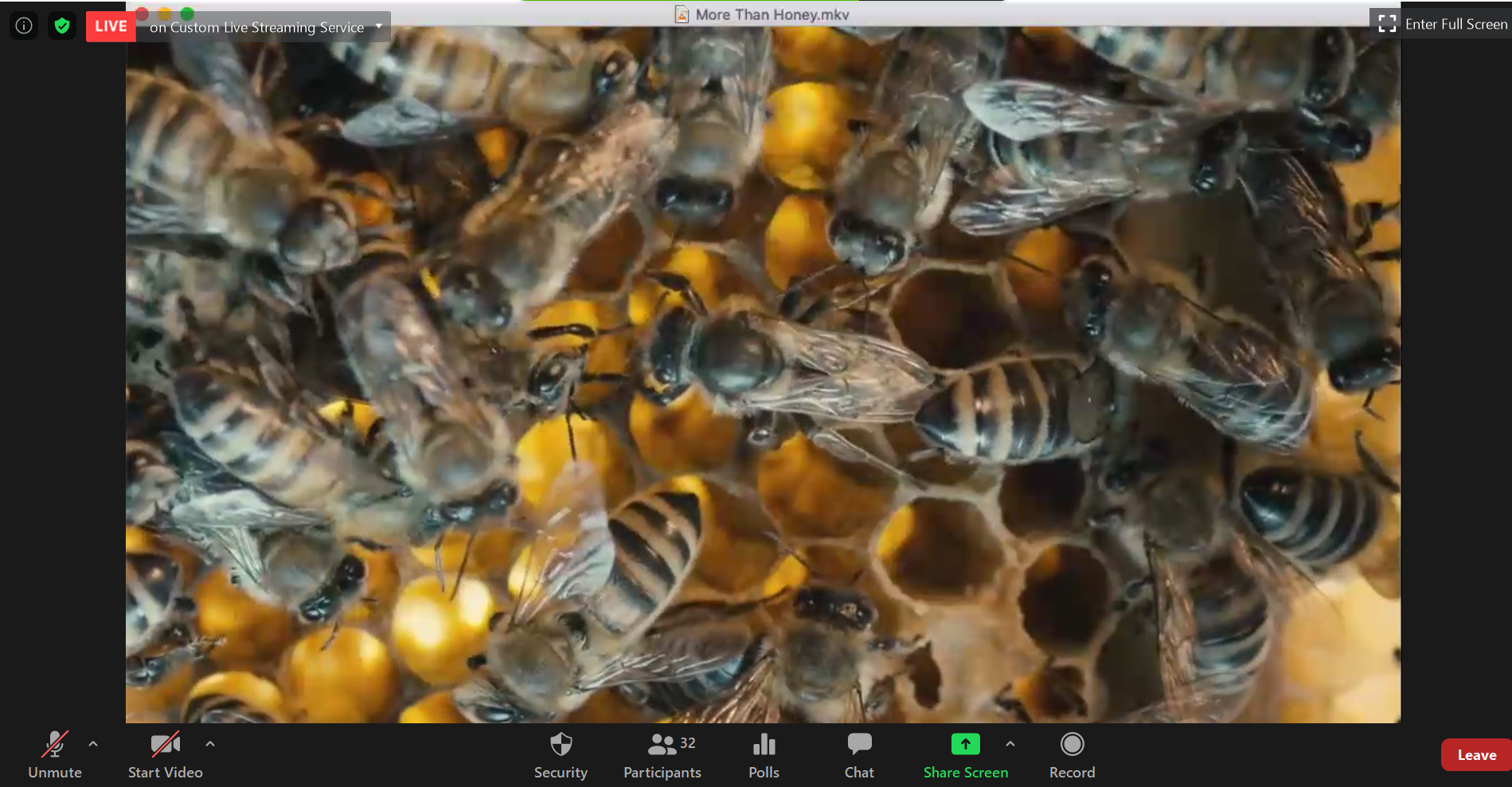
The documentary doesn’t identify a single cause of CCD. Instead, it attributes its rise to a combination of factors: use of pesticides, stress caused by human intervention, attacks by parasites/bacteria. The message is clear though. To quote the narrator: “The massive death of bees is no mystery … They are dying as a result of our civilization’s success, as a result of man, who has turned feral bees into delicate domestic animals, wolves into poodles.” The documentary proceeds to offer a brief glimpse into what agricultural production across the world would look like without bees, by showing an orchard in China where human workers are seen climbing trees and daubing flowers awkwardly by hand with pollen out of a packet.
The film does end on a more positive note: we see an American beekeeper ‘rescuing’ a swarm of Africanised bees from potential extermination. He explains that, contrary to popular belief, he has seen evidence that these foreign bees can produce good-quality honey, and are not necessarily a threat to humans (or other bees) as long as they are not forced into artificial hives. A couple of bee research scientists from Australia conclude the documentary by claiming that genetic diversity and variance in bees may well help to put a stop to CCD.
Part 2: Presentation and Q&A with Kendrick Wong
Following the film screening, we were introduced to local bee lover Kendrick Wong. Through an informative presentation, quiz and a brief Q&A session, Kendrick reminded us just how complex and amazing the humble honeybee is. It was fascinating to hear about the types of trees in Hong Kong that are a good source of nectar (lychee, longyan, Chinese tallow and ivy trees, apparently).
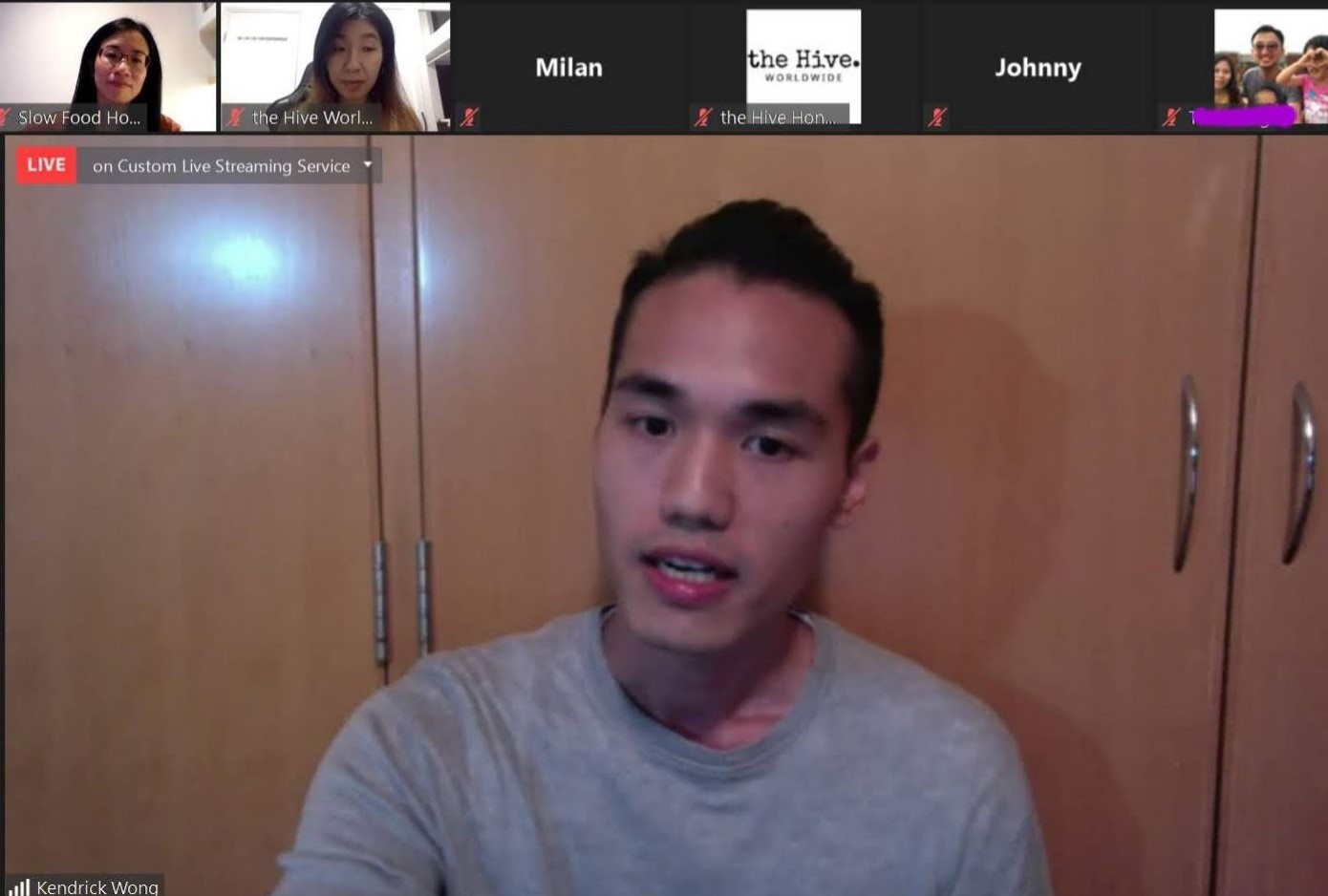
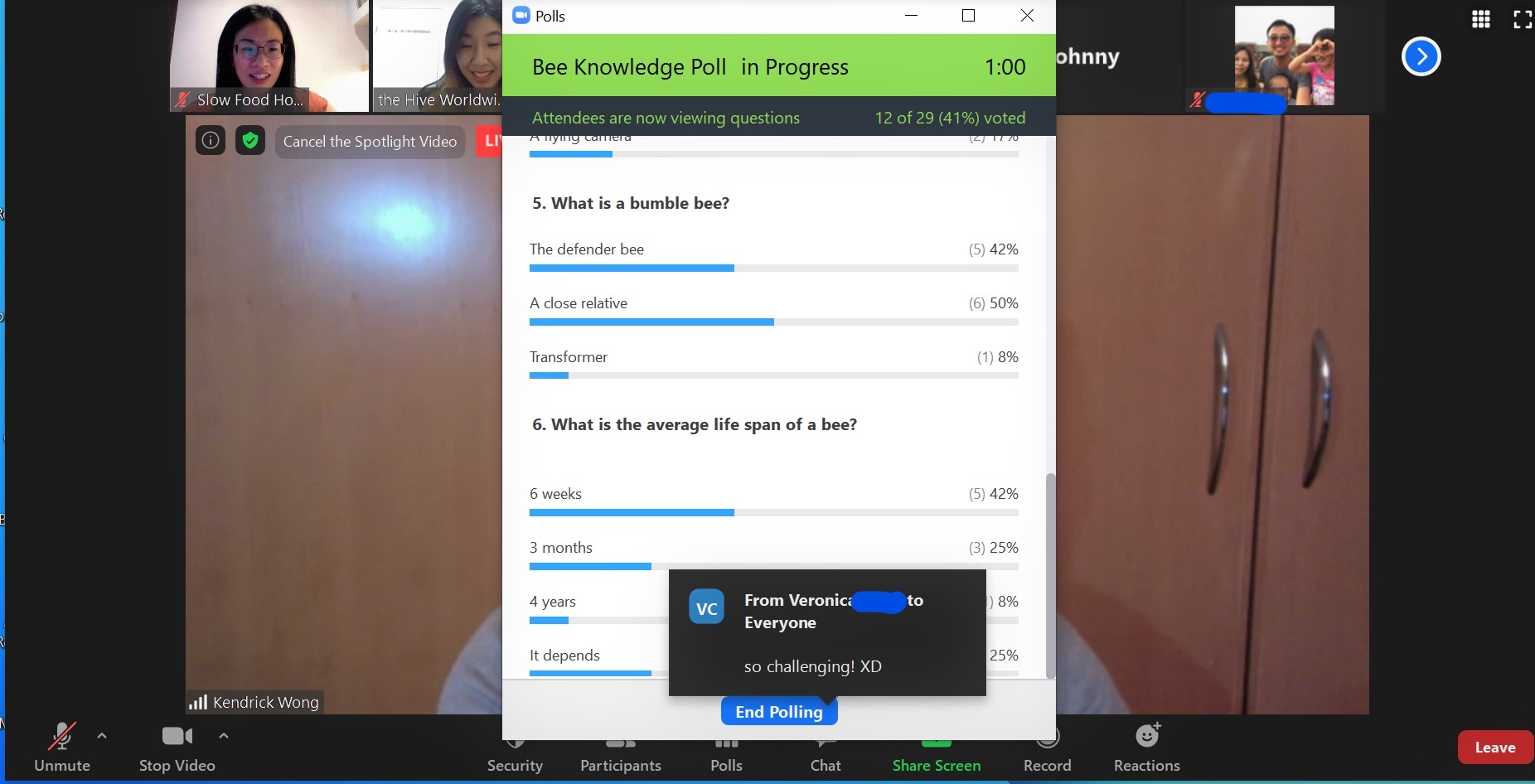
Kendrick also shared with us his own experience of beekeeping in Hong Kong: why he got into it, the practicalities, challenges and rewards. He explained how a chance discovery about urban beekeeping led him to join a theory class, which in turn led him to his Sifu, an experienced beekeeper who showed Kendrick the ropes and even rented out a few hives to him so he could gain hands-on experience. Referring to beekeeping as a “humbling experience”, Kendrick spoke about how it offered him a real sense of appreciation of how clever bees are, how small humans are in comparison. Using the “EGO vs ECO” diagram, Kendricks reiterated his belief that humans need to stop subduing others or finding solutions for short-term gains, but instead we need to think of ourselves as being part of a larger group with other creatures and learn to co-exist with each other.

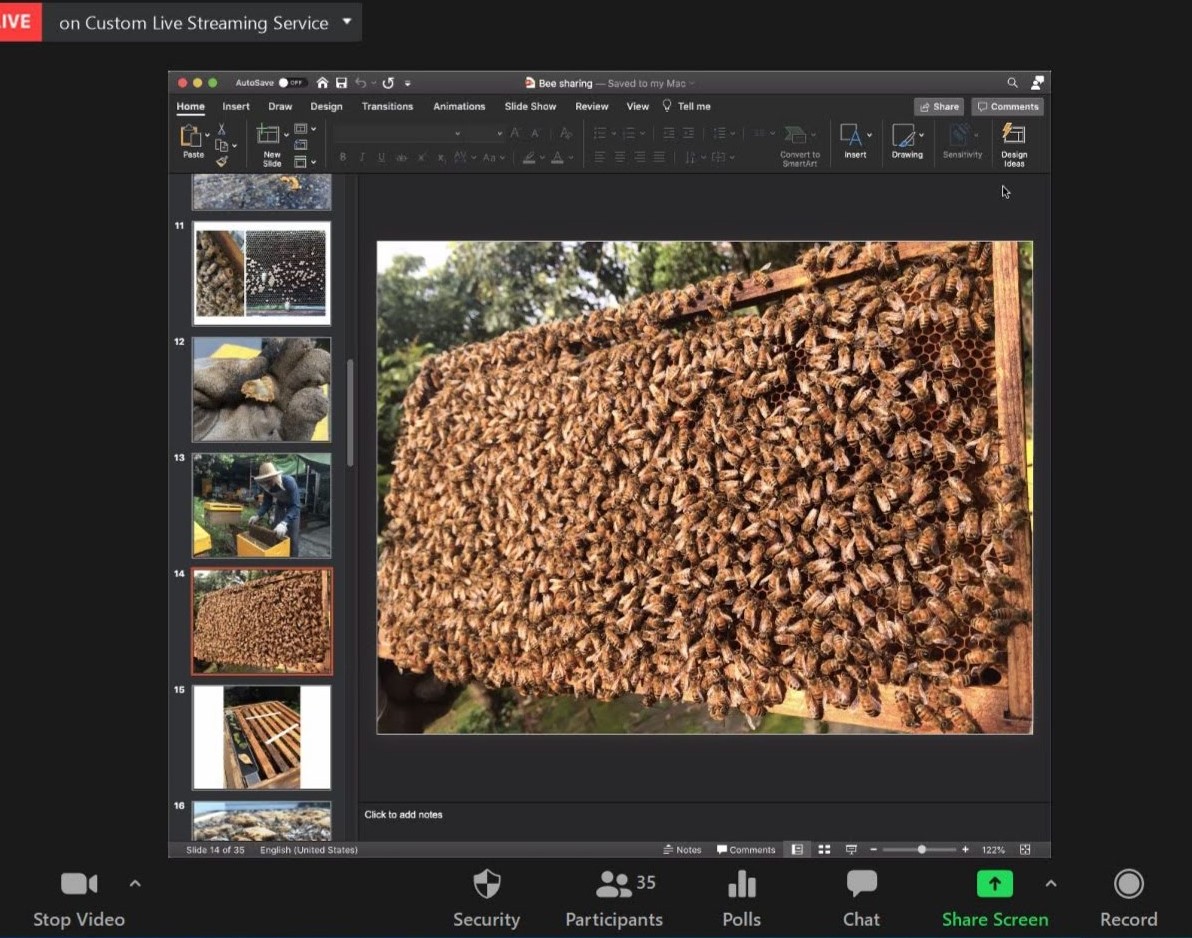
Even though the session overran slightly (there was not enough time for Kendrick to address all the questions from the audience!), the majority of the attendees stayed until the end. This is a real testament to the quality of this event, especially Kendrick’s personal beekeeping journey! As for me, having watched the documentary and listened to Kendrick’s impassioned sharings, I definitely have a greater appreciation of the honeybees’ efforts that go into producing a single teaspoon of this viscous, golden liquid, and will certainly try harder to source honey that is responsibly produced.

Rewatch the Facebook live session of the presentation and Q&A with Kendrick here!
Sze Kiu Yeung is originally from Hong Kong but now resides in London. She is a freelance editor specialising in educational publishing. She enjoys spending time in the great outdoors.
